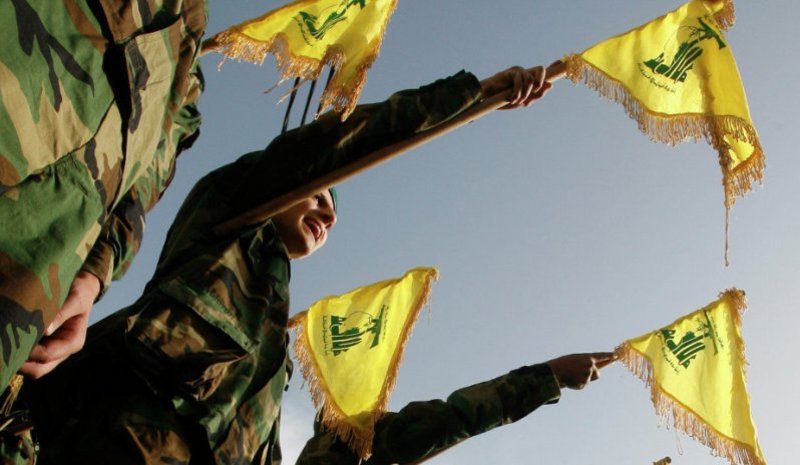Department of Justice Right to Go after Hezbollah
إيمانويل اوتولنجي/موقع ذا هيل/وزارة العدل الأميركية محقة في ملاحقة حزب الله
Emanuele Ottolenghi/The Hill/October 18/18
Attorney General Jeff Sessions made clear yesterday that Hezbollah is not just an Iranian-backed terrorist organization, but also one of the most dangerous crime syndicates in the world.
In his remarks announcing the creation of a new Transnational Organized Crime Task Force, Sessions identified five criminal groups as America’s “top transnational organized crime threats.” The list includes Hezbollah alongside four Central American cartels known for their brutality, such as MS-13.
Yesterday’s announcement follows the Department of Justice’s decision, almost a year ago, to form a Hezbollah terror finance task force to combat the organization’s illicit financial flows. Yet Hezbollah’s crimes are not just financial; they are an active participant at every stage of the drug supply chain, including — ominously — significant sales to the U.S. market, as a case recently tried in Miami reveals. Thus, the identification of Hezbollah as a Transnational Criminal Organization, or TCO, is more than justified.
Over the past fifteen years, Hezbollah’s involvement in transnational organized crime has evolved into a multi-billion dollar global enterprise endorsed and coordinated by the group’s top leaders. Hezbollah’s production and sale of counterfeit medicines such as Captagon — a powerful amphetamine — is well documented. So are its growing involvement in cocaine trafficking, and its extensive and enduring ties with drug cartels.
By including Hezbollah in its new Task Force’s top targets, the Department of Justice is clearly recognizing Hezbollah’s global criminal enterprises as a core element of the terror group’s activities and a threat to U.S. national security. A U.S. strategy to disrupt Hezbollah’s financial flows will now rely not just on sanctions but also on sustained investigations, indictments, arrests, extraditions and convictions that the Justice Department will seek through the work of its newly minted task force.
An important reason for Hezbollah’s growth, especially in Latin America and West Africa, is the presumption of many local officials that terrorism is Washington’s problem, not theirs. The designation of Hezbollah as a TCO, followed by criminal investigations and extradition requests from Washington, will help to clarify that Hezbollah presents precisely the same kind of threat as the cartels.
Law enforcement tools have shown that they can inflict substantial damage on Hezbollah, yet the U.S. has not always had the will to use them. Less than a year ago, a Politico investigation ignited a firestorm by charging that the Obama administration deliberately undermined Project Cassandra, an ambitious effort by the U.S. Drug Enforcement Administration to stop Hezbollah from trafficking drugs into the United States and Europe.
Project Cassandra’s remarkable achievements included the Lebanese-Canadian Bank investigation, which shut down the bank and led to the 2011 indictment of Hezbollah kingpin Ayman Joumaa, a Lebanese-Colombian dual national who laundered money for Mexican and Colombian cartels to the tune of $200 million a month. A DEA official discussing the case said that Hezbollah operated like “the Gambinos on steroids.”
The Politico investigation concluded, however, that the Obama administration shut down Project Cassandra because the aggressive pursuit of an Iranian proxy was at odds with the White House’s overtures to Tehran. DOJ scattered the Project Cassandra team to unrelated assignments. The agency’s strategy against Hezbollah was left in disarray.
The Trump administration has begun to reverse this trend. U.S. efforts to combat Hezbollah’s networks in Latin America have become apparent in recent weeks. Recent cases investigating Hezbollah’s preparations to launch terror attacks against U.S. and Latin American targets show the threat is real and not limited to terror finance. And quiet pressure along with public diplomacy are showing signs that even countries traditionally reluctant to touch Hezbollah’s local networks may be ready to change course.
The Department of Treasury, meanwhile, beefed up its designations efforts against Hezbollah networks in Lebanon and West Africa. This year alone, Treasury has repeatedly targeted Hezbollah financial networks linked to Hezbollah’s financier, Adham Tabaja and his associates. The Attorney General’s description of Hezbollah as a TCO suggests that a formal TCO designation from the U.S. Treasury may soon be coming.
Finally, last week, Congress passed the Hezbollah International Finance Prevention Act Amendment of 2018, which further enhances the toolkit available to the executive to go after not just Hezbollah members but also their financial and political facilitators. The target pool for prosecutions, in other words, just got bigger.
Over the years, U.S. sanctions, as well as court cases in the United States and overseas, reveal that Hezbollah-linked operatives have acted as logistics and financial service providers, traffickers, drug barons, distributors, and, more recently, suppliers of precursor chemicals used to refine cocaine.
Hezbollah is inextricably tied to the world’s most dangerous criminal organizations, and is helping them grow more powerful. Naming Hezbollah as a TCO and devoting considerable resources to prosecute its overseas financial networks will now expose organized crime and radical Islamic terrorism’s deadly convergence, and make the fight against Hezbollah’s global terror finance networks more effective.























